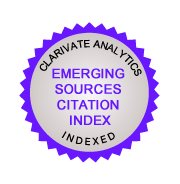CAN THE "TAX THE RICH, SUBSIDISE THE POOR" POLICY IMPROVE FINANCIAL SATISFACTION AMONG MALAYSIANS?
DOI:
https://doi.org/10.32890/ijms.27.1.2020.8005Keywords:
Financial satisfaction, Malaysia, tax and subsidyAbstract
“Tax the rich, subsidise the poor” is deemed one of the typical finance characteristics of democracy and a solution in reducing income inequality. The Malaysian government has also adopted this strategy in its income redistribution policy. Evidently, this strategy can minimise the income gaps at the country level. However, it is doubtful if it can be effectively done at the individual level. The rich have to pay more while the poor can enjoy the ‘free’ income. Would that lead to financial satisfaction? Hence, the main objective of this study was to investigate the impact of individual perceptions on the government’s democratic act in implementing “tax the rich, subsidise the poor” policy for financial satisfaction among Malaysians. For an empirical analysis, this paper discusses the study conducted which used the sixth wave of the World Value Survey (WVS) data with 1290 respondents and is regressed by the ordered logit and ordered probit modelling. The results indicated that the democratic act of ‘taxing the rich and subsidising the poor’ in reality reduces financial satisfaction among Malaysians. In contrast, these same Malaysians wish for a larger income difference as an incentive for individual efforts. In view of this, the government and policy makers should make revisions to the current progressive taxation system or look for other alternative taxation systems which may be seen as fairer and can improve financial satisfaction among Malaysians at each income level.
Metrics
Additional Files
Published
How to Cite
Issue
Section
License
Copyright (c) 2020 International Journal of Management Studies

This work is licensed under a Creative Commons Attribution 4.0 International License.
















